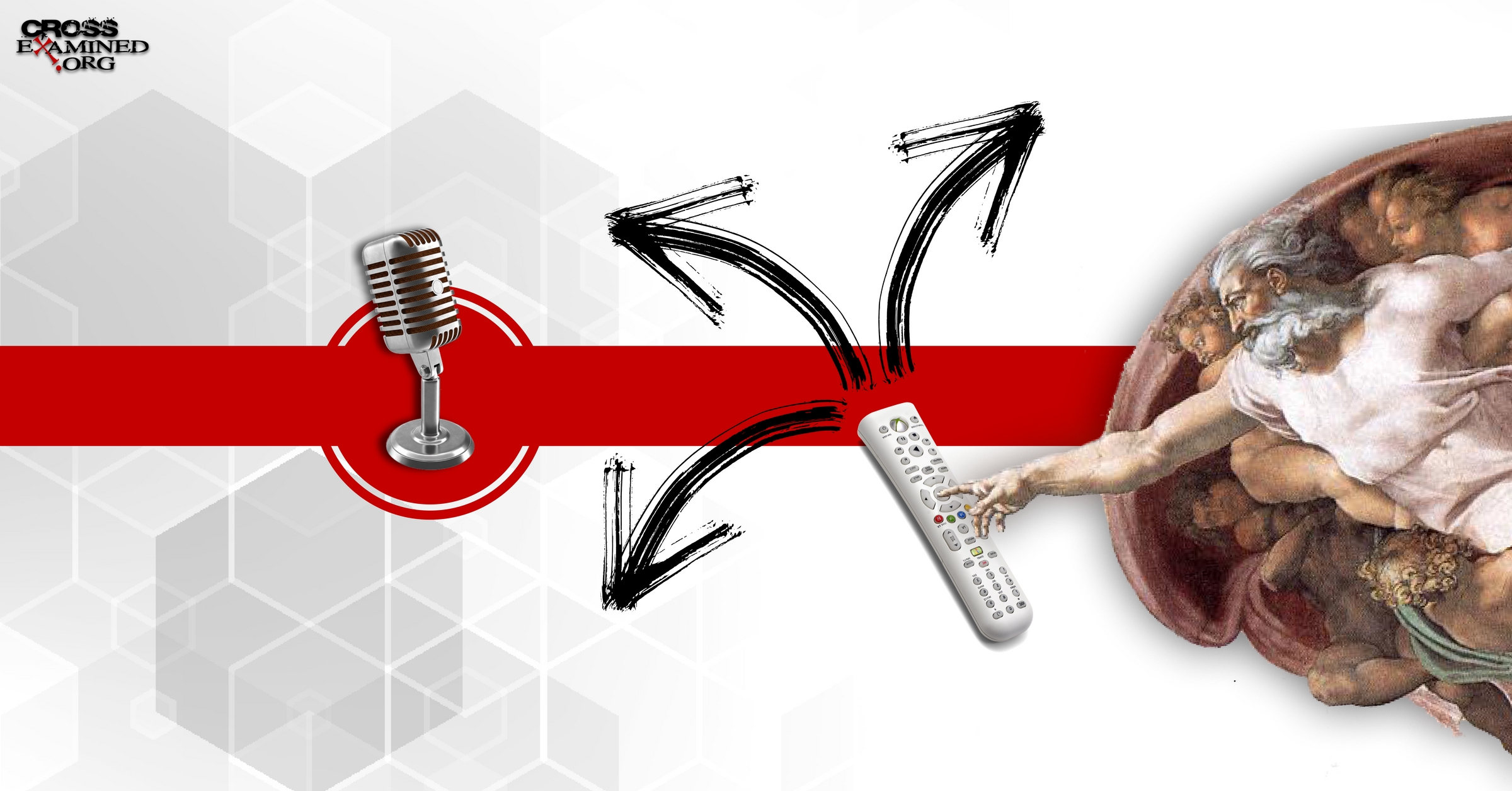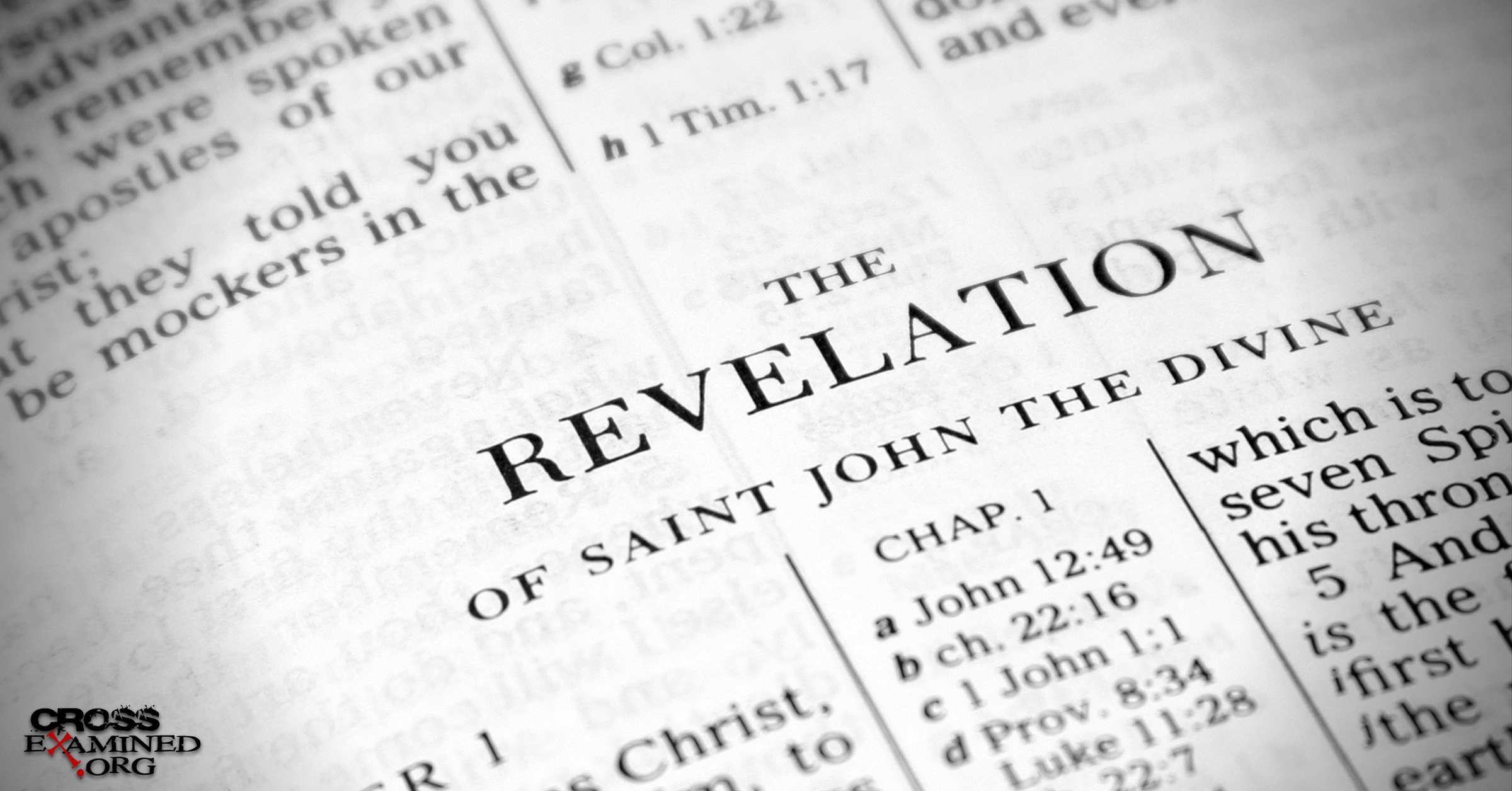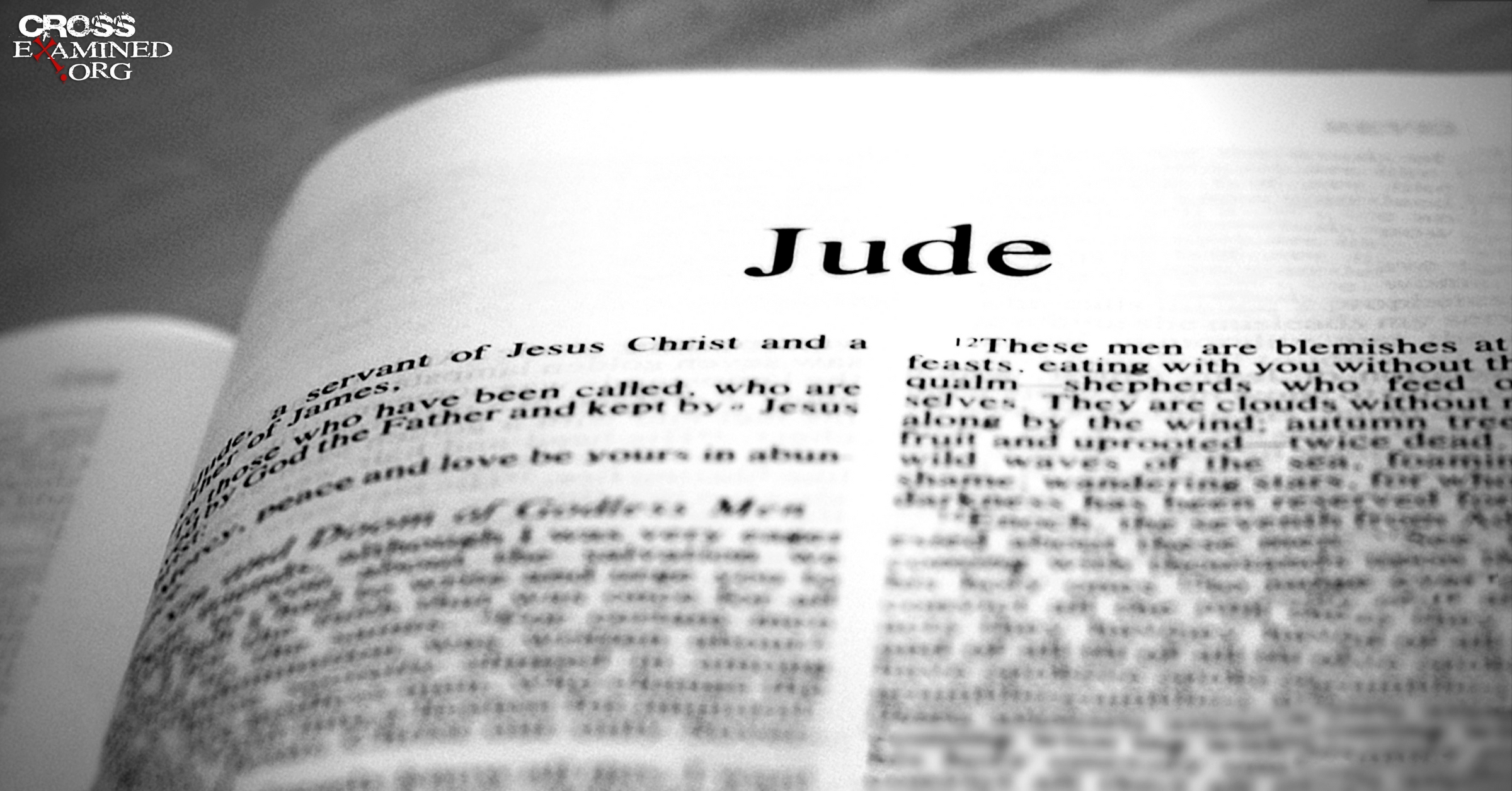Algunos ateos, en un intento de evitar la conclusión de que el origen del Big Bang de nuestro universo fue causado por un ser sin espacio, intemporal, inmaterial, sin causa, poderoso, sobrenatural (es decir, Dios), han postulado que tal vez nuestro universo y todo lo que hay en él es solo una simulación computarizada dirigida por extraterrestres en un laboratorio. El Big Bang fue el lanzamiento del programa y el desarrollo del universo por sus leyes finamente ajustadas formaba parte del código del programa-universo.
Si crees que estoy inventando esto, revisa esta cita de Neil deGrasse Tyson en su galardonado libro Astrophysics For People In A Hurry (en español: Astrofísica para la gente que tiene prisa):
“¿O qué pasaría si todo lo que conocemos y amamos fuera solo una simulación computarizada hechos para el entretenimiento por una especie de alienígena supe inteligente?”[1][2]
También vi esta idea arrojada en una caricatura donde un par de extraterrestres estaban en este enorme acelerador de partículas. Los extraterrestres eran tus típicos hombrecillos verdes, sin pelo, ojos negros gigantescos, y trajes espaciales plateados. Y la imagen muestra nuestro universo como el resultado de un experimento que los extraterrestres estaban haciendo con el acelerador/colisionador de partículas grandes.
¿Estos son estos ateos, verdad? ¿Fue el Big Bang el resultado de extraterrestres jugando con un acelerador de partículas en su universo? [3] ¿O solo somos una simulación en un programa de seres más avanzados que nosotros? Refutar esta propuesta es el objetivo de esta entrada en el blog.
CUALQUIER UNIVERSO DE SIMULACIÓN COMPUTARIZADA CREADO POR EXTRATERRESTRES DEBE TENER UN PRINCIPIO
En primer lugar, incluso si admitimos esta idea (de la cual Tyson solo descarta como una posibilidad), no se desharía de Dios. No erradicaría el análisis conceptual del Argumento cosmológico Kalam. ¿Por qué? Porque en el universo en el que la computadora simula nuestro existir, ese universo debe perdurar en el tiempo. Si este universo perdura en el tiempo, entonces debe tener un comienzo y, por lo tanto, una causa trascendente.
¿Cómo llegué a esta conclusión? De uno de los mismos argumentos filosóficos/matemáticos que me llevan a la conclusión de que nuestro universo tuvo un comienzo. En primer lugar, sabemos que estos extraterrestres tendrían que perdurar en el tiempo porque los alienígenas viven en un mundo de causa y efecto, de relaciones de antes y después. Hubo un tiempo antes de que estos científicos alienígenas nacieran y un tiempo después que ellos nacieran. Hubo un tiempo antes de obtener sus títulos en ingeniería informática y un tiempo después que ellos se graduaran. Hubo un tiempo antes de que construyeran la computadora que causó nuestro universo simulado, y un tiempo después que funcionara la simulación. Las relaciones de antes y después son imposibles sin tiempo. Según la descripción de esta teoría, nuestras criaturas alienígenas creadores son seres temporales. Esto me lleva al siguiente punto.
- Es imposible atravesar una cantidad realmente infinita de momentos temporales.
- Si es imposible atravesar un número realmente infinito de momentos, entonces no se puede alcanzar el momento presente.
- El momento presente ha sido alcanzado.
- Por lo tanto, no hemos perdurado a través de un número realmente infinito de momentos temporales (es decir, el universo tuvo un comienzo).
Este es un silogismo lógicamente válido. Si las premisas son verdaderas, también lo es la conclusión. Entonces, ¿son ciertas las premisas? Creo que lo son.
Veamos la premisa 1. Si el universo de nuestros creadores alienígenas fuera eterno y sin comienzo (a diferencia del universo que simularon), eso significa que su mundo soportó un número infinito de momentos para llegar al momento en el que causaron su simulación. Antes del día de la simulación, el día antes de la simulación tenía que comenzar. Y antes del día anterior al día de la simulación podría amanecer, el día anterior al día antes del día anterior a la simulación podría amanecer. Antes de que ese día pudiera amanecer, el día anterior tenía que amanecer. Antes de que ese día pudiera amanecer, el día anterior tenía que amanecer, y así sucesivamente. Como puedes ver, el día en que los científicos alienígenas causaron su simulación del universo nunca pudo haber llegado, porque habría que pasar un número infinito de momentos previos. De hecho, ningún momento en su universo en absoluto podría comenzar. Antes de cada día en la serie infinita de días, siempre tendría que haber un día que tuviera que amanecer primero.
Llegar al momento presente mientras se tiene que cruzar primero un número infinito de eventos pasados es análogo a saltar de un pozo sin fondo, o hacer que se desborde una cafetera sin fondo. No importa cuánto café vierta en la taza, nunca se llenará hasta el borde.
Pero si un pasado infinito no se puede cruzar, entonces eso significa que el día del inicio de la simulación no pudo llegar. Y eso significa que nuestro día actual no pudo llegar. El comienzo de nuestra historia de 14 mil millones de años nunca pudo haber ocurrido (esta es la premisa 2). Pero claramente, el momento presente ha llegado (premisa 3). Estamos aquí. Estás leyendo esta publicación en el blog ahora mismo. Es evidente que el presente ha llegado. Esto significa que el universo de nuestros creadores alienígenas no podría haber perdurado para siempre, sino que debe tener un comienzo. Y dado que todo lo que comienza a existir debe tener una causa, se deduce que el universo de nuestros creadores alienígenas debe tener una causa.
PERO QUIZÁS ESTEMOS EN UNA SIMULACIÓN DENTRO DE UNA SIMULACIÓN
En este punto, el ateo podría responder: “Está bien, pero tal vez el universo de nuestros creadores alienígenas es también una simulación. Estamos en una simulación que está dentro de una simulación. Así como una muñeca que hace su nido puede estar dentro de otro nido de muñeca”. Esto no resuelve el problema. Solo lo empuja hacia atrás otro nivel. ¿Están esos extraterrestres sujetos al tiempo? Parecería ser así, si evolucionaran, nacieran, crecieran, fueran a universidades para obtener títulos en programación de computadoras y luego crearan una simulación universal que tendría una simulación de universo dentro de ella. En ese caso, te encuentras con el mismo problema. Ese universo también debe tener un comienzo.
Pero tal vez el ateo podría decir: “Bueno, ¿tal vez somos una simulación dentro de una simulación dentro de una simulación?”. Nuevamente, se aplican los mismos problemas.
Lo que ocurre es que en este escenario de simulación-alienígena-científica-creadora-de-un-universo es que te lanzas a un retroceso infinito de alienígenas creando simulaciones universales que contienen alienígenas que crean simulaciones del universo que contienen simulaciones del universo consigo mismas que contienen simulaciones del universo indefinidamente.
Como ya se explicó anteriormente, atravesar un número realmente infinito de cosas es imposible. Nuestra propia simulación nunca podría haber surgido si un número pasado e infinito de simulaciones del universo tuviera que surgir primero. Antes de que los extraterrestres pudieran simular nuestro universo, su universo tendría que ser simulado, y antes de que su universo pudiera ser simulado, su universo tendría que ser una simulación, y así sucesivamente hasta el infinito. Ninguna simulación podría llegar al pasado, y ergo la simulación actual (y el momento presente dentro de la simulación) nunca podría llegar a ser.
¿QUÉ SIGNIFICA TODO ESTO?
Significa que incluso en un escenario en el que los alienígenas súper avanzados creen un programa informático de un universo, eventualmente se remonta a un universo que no sea una simulación por computadora, pero sin embargo contiene criaturas alienígenas súper avanzadas y (espera…) tuvo un comienzo. En este escenario, debemos llegar a un primer universo, el primer comienzo y, por lo tanto, la primera causa.
Pero, ¿qué propiedades tendría esta causa? No sería un equipo de extraterrestres avanzados ya que este primer universo no es en sí mismo el resultado de un equipo anterior de científicos alienígenas. La causa trascendería toda la realidad física, todo el espacio y el tiempo, y por lo tanto sería inmaterial y no causada. En otras palabras, Dios levanta Su santa cabeza otra vez.
Dios está exento de los problemas que los creadores de alienígenas tendrían. Él no tuvo comienzo y no es causado, y por lo tanto no necesita una causa previa para explicarlo. El hecho de que Dios no tenga principio no implicaría que Él haya aguantado a través de un número realmente infinito de momentos porque Dios, sin la creación del tiempo, existió fuera del tiempo. No había tiempo. Una vez que Dios movió el primer dominó, el tiempo comenzó. Este es un tema un tanto pesado, y el filósofo cristiano William Lane Craig ha dedicado un libro completo al tema, [4] pero solo quería señalar que siendo intemporal y sin haber sido creado, Dios evita los problemas asociados con el hecho de no tener un principio de manera temporal.
CONCLUSIÓN
Desafortunadamente para los ateos, esta idea alienígena de simulación por computadora solo hace a Dios subir las escaleras al máximo. No se deshace de Él. El análisis conceptual del Argumento Cosmológico Kalam sigue en pie.
Notas
[1] deGrasse Tyson, Neil.Astrophysics for People in a Hurry (Ubicaciones Kindle 170-171). W. W. Norton & Company. Versión Kindle.
[2] Por cierto, no dejes que esta idea descabellada te impida obtener el libro de Tyson. Solo menciona la idea de simulación en este lugar. “Astrophysics For People In A Hurry” es un fantástico curso de introducción a la astrofísica. Tyson no presenta teorías salvajes como esta, y solo muestra su manga atea un total de dos veces. El primero en esta parte del libro, y el segundo, en el capítulo final. Es una obra religiosamente neutral en general. Recomiendo a cualquiera que ame la ciencia (y sea especialmente no muy letrado en ciencias) adquirir el libro.
[3] Por cierto, esto sucedió en un episodio de Doctor Who (titulado Extremis). No describiré lo que sucedió en el episodio. Míralo tú mismo. Mira toda la serie de hecho. ¡Es un espectáculo increíble!
[4] El libro se llama “Time and Eternity: Exploring God’s Relationship To Time” (Tiempo y eternidad: explorando la relación de Dios con el tiempo).
Blog Original: http://bit.ly/2ErH4n3
Traducido por María Andreina Cerrada










